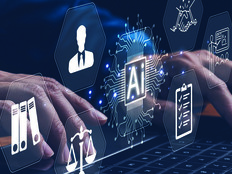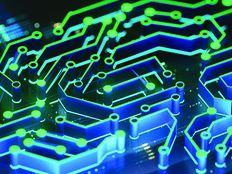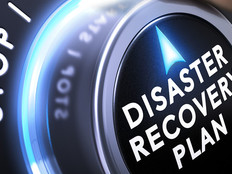The Third Platform Presents Endless Possibilities
Big Data, cloud computing, social media and mobility are changing government technology on their own, but as they begin to work together, they could have an even larger impact.
In what research organization IDC calls “the third platform,” the convergence of these technologies is poised to transform the way people, businesses and government relate to technology.
Forward-thinking businesses already leverage this concept, and government is in the early stages of adoption.
Data Is Generated by Billions of Users
IDC expects the use of third-platform technologies to quickly expand, easily doubling this year alone. IDC says they could disruptively transform every industry on the planet.
Some early examples include alternative payment networks in financial services; the expansion of the Internet of Things into public safety, utility and transportation systems; and the expansion of location-based services in the retail industry.
“Globally, billions of users generate a large volume of data in a variety of forms,” says Adelaide O’Brien, research director for IDC’s U.S. Government IT Transformation Strategies. “Through these technologies, we see the beginning of a collaborative conversation between government agencies and citizens that will produce a new level of service.”
Understanding How Third-Platform Technologies Are Used
The convergence of third-platform technologies presents organizations with a clearer picture of the world they try to serve, as they collect information through social and mobile technologies, store it in the cloud and use Big Data analytics to make a much better sense of it.
The percentage of organizations that say Internet of Things solutions will be their most strategic initiatives over the next decade
SOURCE: Forrester Research, “Internet-Of-Things Solution Deployment Gains Momentum Among Firms Globally,” November 2014
Government, with the amount of data it collects, stands to benefit greatly. Agencies are already combining third-platform technologies to create new and innovative solutions.
For example, during the 2014 Ebola outbreak, the Centers for Disease Control and Prevention tracked people exposed to the disease by using location-based data to map the disease spread.
That data was collected through fieldworkers’ mobile devices to give officials a larger picture, helping them contain the disease.
For government health agencies, third-platform technologies promise to streamline patient care in the future. “They could leverage wearable or home-based sensor systems for patients who don’t have time or energy to travel to a hospital or clinic,” says Audie Hittle, federal chief technology officer for EMC’s Emerging Technologies Division.
The Future of Third-Platform Technologies
State and local transportation departments already deliver traffic alerts to drivers via social media.
The Transportation Department has discussed intelligent transportation initiatives in which sensors embedded in highways would communicate with autonomous vehicles to create a constant flow of information between the government, drivers, roads and cars.
These are simply the first examples of this convergence. As these technologies continue to converge, business, education and government will all benefit — and so will citizens.









